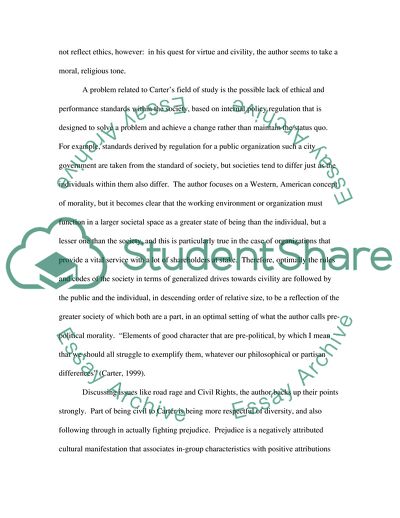Cite this document
(Carters Civility Essay Example | Topics and Well Written Essays - 1500 words, n.d.)
Carters Civility Essay Example | Topics and Well Written Essays - 1500 words. https://studentshare.org/social-science/1742183-civility
Carters Civility Essay Example | Topics and Well Written Essays - 1500 words. https://studentshare.org/social-science/1742183-civility
(Carters Civility Essay Example | Topics and Well Written Essays - 1500 Words)
Carters Civility Essay Example | Topics and Well Written Essays - 1500 Words. https://studentshare.org/social-science/1742183-civility.
Carters Civility Essay Example | Topics and Well Written Essays - 1500 Words. https://studentshare.org/social-science/1742183-civility.
“Carters Civility Essay Example | Topics and Well Written Essays - 1500 Words”. https://studentshare.org/social-science/1742183-civility.


